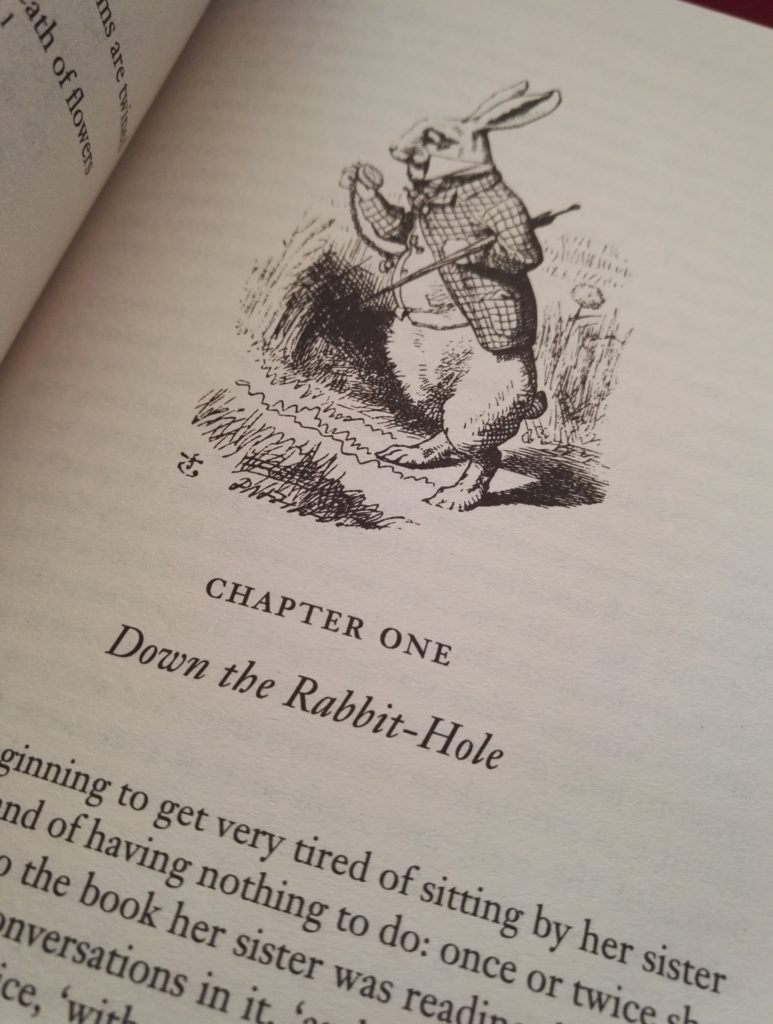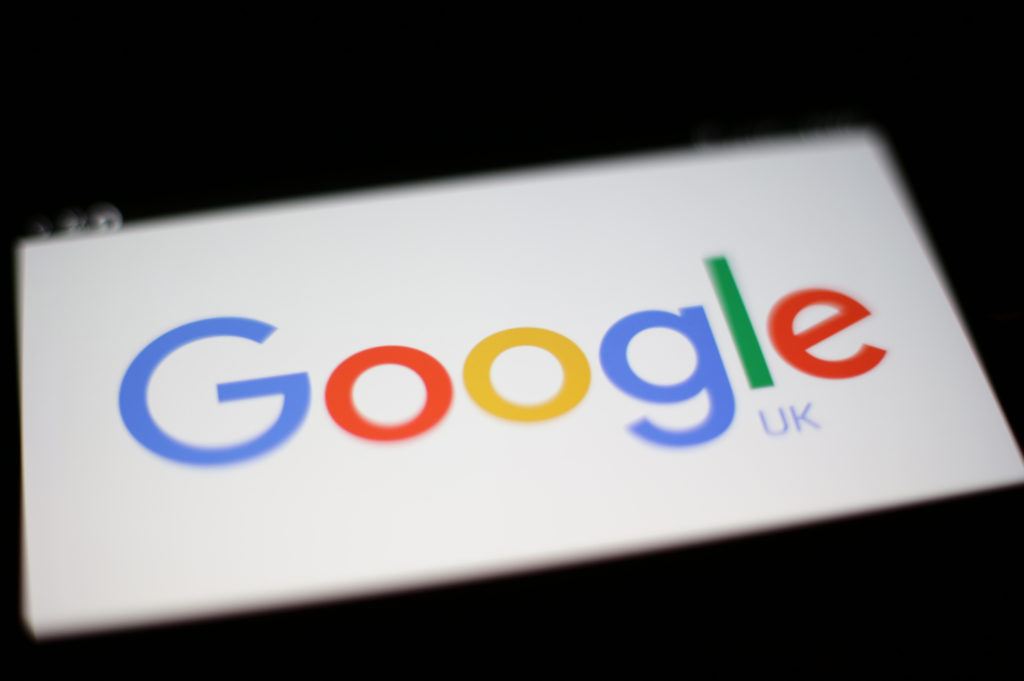A kindle E-book reader on an open book (Credit Image: Thomas Eisenhuth/DPA/PA Images)

“It’s no use going back to yesterday, because I was a different person then.” [1. This and other quotes from Lewis Carroll’s Alice in Wonderland, helpfully curated by Jane Carruth at goodreads.] – Alice in Wonderland
The market economy did pretty well for us in the 20th century. Companies produced stuff from cars to record players, and consumers got increasingly savvy about quality and price. About our rights. And about shopping around among competing products. We read Which? (UK) and Consumer Reports (US) and consumerism the movement was born.
Then something weird started to happen: the digital revolution.
We fell down the rabbit hole with Alice into Wonderland, and everything started to look weird.
In the beginning was Kindle
Amazon suddenly started offering us digital books – no need to trek to the bookshop, just buy and download!
But “buy” needs to be in quotes. A Kindle book won’t fill your bookshelves, but there are other things you can’t do with it. You can’t sell it, you can’t even give it away, because of course it isn’t really “yours.” You’ve really just borrowed it – or, rather, the right to read it. OK, you’ve rented it. While it looked as if Amazon had come up with a new way to enable you to buy books, what it had really done was re-create something from the 19th century – the lending library where you have to pay.
Curiouser and curiouser
While you have to pay to rent books on Kindle, there are plenty of digital goods for which you pay nothing at all. That seems wonderful. Something for nothing! But, as the old saying goes, when something seems too good to be true, it usually is. (An old saying we could do with reviving in the digital era.)
The biggest problem is this: when it comes to “free” digital goods and services, because you aren’t using your credit card or getting monthly bills you tend not to think of yourself as a “consumer” at all. You’re just a “user” – a word the digital industry likes –or a “member.” To be a consumer you must buy things, don’t you, with money?
Actually, no. All it takes to be a consumer is to make an exchange, a transaction in the market-place. One of the curiouser ironies of the digital industry is its core business model, which takes us back to the days of primitive societies. They didn’t have cash, yet they still had transactions. We’re back in the history-book concept of barter. I’ll trade a dozen eggs for your chicken.
Barter is trading that doesn’t involve money. Its revival lies at the heart of the digital economy. And it’s one reason barter-based companies like Facebook and Google and many smaller ones are so hard for governments to regulate. Or for consumers to take seriously as companies.

What’s the trade-off?
So, users of Facebook and Google rarely sit down and ask themselves “how much am I paying to post these pictures, or ask these questions?” We just fire up our browsers and jump in. Of course, there are costs involved in our doing so – we pay for broadband cable or some other access to the internet. But we know we aren’t paying for the services we use. Are they some sort of charity?
What we need to be asking ourselves is, Where do these huge corporations make all that money?
There are three kinds of answer. One is simply advertising. Facebook and Google are sucking up more than half the ads on the internet, and the internet is steadily sucking ads from print and other real-world locations. We see ads and we assume this is how we are paying – and we may also know that for a century and more this is how newspapers have operated: the cover price has only covered a fraction of the cost; the rest comes from ads.
But here it’s a lot more complex. Because this is less about ads than about data. Everyone opening the New York Times sees the same ads for Macy’s department store and BMW and Givenchy. No two people using Facebook will ever see the same ads. Because these companies are sucking up enormous amounts of data about their users, analyzing it in ever more complex fashion, and using or selling it to shape our purchasing decisions. If you ask Facebook for all the data they have on you and you’re a typical user, it will run to well over one thousand printed pages.[2. A well-known case that brought this to light is that of Austrian law student Max Schrems. Kevin Parrish, “User’s Facebook Data Request Produces 1222 Pg PDF on CD.”]
As Silicon Valley entrepreneur Jeff Hammerbacher famously put it, “The best minds of my generation are thinking about how to make people click ads.” And that’s why mathematicians, who write the formulae that turn your raw data into ads that will make you buy, are in such demand.[3. Ashlee Vance, “This Tech Bubble is Different” Bloomberg, April 14, 2011.]
But there’s a third way to answer the question, and it’s even more disturbing: If you’re not paying for it, you’re the product. That is, the service you are using is profitable because it sucks up your data and uses it to target ads at you and everyone you have ever known.
Put it like that and it’s a bit more obvious that these really are big businesses, and we really are consumers who pay for what we get.
Alongside the “free” stuff like Google there are also many digital goods and services for which we actually do pay – for example when you buy software like Microsoft Word or download Apple music or movies from Netflix. In many of these cases we’re doing both: paying cash, and also paying in data.

Those “privacy” statements
If we’re paying in data, do we have any say in how much data they take?
Those “privacy” statements that we sign giving permission to companies to search our phones and sell our data are the key. They’re separate from “privacy” settings – on Facebook and other sites – when you can decide how much of your stuff you want other people to see. These are take-it-or-leave-it contracts that rarely give you any choices and hand over your data to the company.
What’s a consumer to do?
‘Would you tell me, please, which way I ought to go from here?’
‘That depends a good deal on where you want to get to,’ said the Cat.
– Alice in Wonderland
There’s one obvious change in the law that could turn the weird world of digital goods into something that better resembled the consumer market-place we understand. We could require companies who seek our data – either as the price of service, or as part of it – to offer a cash alternative. We could require them to give us a consumerist choice.
Facebook for $10 a month – and all your data stays with you? Google for $20, same conditions?
Suddenly we’d all realize we were dealing with huge corporations that make money off us. And we’d be free to make a choice – as to whether we want to buy the product or be it too.
***
READ MORE: Ashlee Vance’s Bloomberg article from April 14, 2011, gives a brilliant insight into the data-ad process by telling the story of a mathematician who started early at Facebook.










Join the discussion
Join like minded readers that support our journalism by becoming a paid subscriber
To join the discussion in the comments, become a paid subscriber.
Join like minded readers that support our journalism, read unlimited articles and enjoy other subscriber-only benefits.
Subscribe